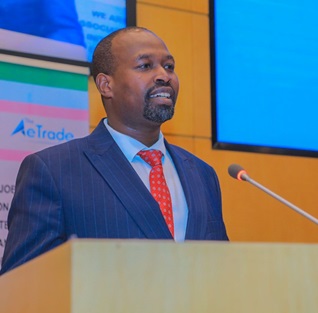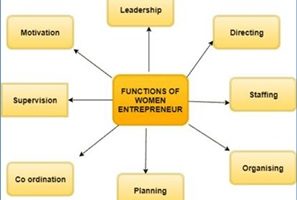
The rapid advancement of digital technology has presented substantial opportunities for women and youth across the globe to spearhead economic and social development.
By expanding access to digital tools and enhancing skills, technology enables women and young people to overcome traditional barriers and thrive in areas such as entrepreneurship and employment, leverage innovation, connect with global markets, and address local challenges.
It is a known fact that Africa is a continent characterized by its youthful population and hard working women, both of whom are crucial to its economic future. With over 60% of Africa’s population under the age of 25, the youth represent a dynamic force for growth and innovation. In this regard, digital technology plays a pivotal role in unlocking opportunities for this demographic, from creating new job markets to enabling access to education and skills development.
Women, too, benefit as digital platforms empower them to run businesses, access healthcare, and participate in the global economy. This technological revolution accelerates Africa’s economic development driving inclusivity and growth. By providing access to digital tools and skills, and equipping youth and women with the skills and confidence needed to initiate their own businesses, digital technology enables Africans to break barriers in entrepreneurship, education, and employment, to harness innovation, access global markets, and solve local challenges.
Mainly, programs focused on digital literacy and STEM education play crucial role to ensure that women and youth are not left behind, fostering inclusivity, boosting productivity, and accelerating sustainable development and social change.
Such initiatives not only enhance individual livelihoods but also contribute to broader economic resilience and social equity. As we recognize the untapped potential of these demographics, it is high time to create an enabling environment that facilitates their active participation in entrepreneurship, ultimately leading to a more sustainable and prosperous future for all.
The recent forum, the African Entrepreneurship Forum, held here in Addis Ababa at the African Hall and deliberated on ways of increasing the participation and equitable benefits of African women and youth from the rapidly growing digital economy emphasized the critical role that the young people and women can play in driving sustainable economic development in Africa. Africa to realize inclusive, sustainable economic growth in the rapidly advancing digital economy should make the participation and fair benefits of its young people and women its primary agenda and work for it, the Forum highlighted.
Speaking at the Forum, State Minister for Labor Employment and Market Sector at the Ministry of Labor and Skills (Mols), Solomon Soka, reiterated that Africa, should ensure the participation and benefits of its women and young people in the digital economy; and make it its main agenda in order to achieve sustainable economic growth by using Africa’s untapped natural resources and large number of young people.
The State Minister said that, the Ethiopian government is working determinedly to enable young people to benefit from digital business and financial services. Concurrent with this initiative, in collaboration with the private sectors and development partners, various plans that target to ensure the success of Ethiopian entrepreneurs and enable to carry out multi-dimensional activities have been designed.
He added that, the Ministry of Labor and Skills is recording encouraging experiences in the development and expansion of micro and small enterprises engaged in various sectors.
At the forum, it was also pointed out that due emphasis would be given to benefit Ethiopian women and youth from the WYFIE 2030 initiative designed to build a resilient continental ecosystem that fosters impactful actions to improve women and youth financial and economic and the Sokokuu-Africa, the efforts being made to develop a digital platform where Africans can trade together and aimed at empowering African SMEs, youth and women.
At the forum, concurrent to the discussion on various agendas in order to ensure the economic benefits of African women and youth, an exhibition and bazaar was held in which micro, small and medium enterprises participated, alongside
As Ethiopia aligns its national strategies with global agendas, the emphasis on empowering marginalized groups not only fosters economic resilience but also promotes social equity. By championing the contributions of women and youth, Ethiopia is taking significant strides toward a more sustainable and prosperous future, demonstrating a commitment to inclusive development that resonates with the broader objectives of the African Union and the United Nations.
Ethiopia’s entrepreneurial culture is rapidly evolving, characterized by a growing recognition of the importance of innovation and small businesses in driving economic growth. This shift is supported by the Ethiopia Entrepreneurship Development Institute (EEDI), which plays a crucial role in fostering this culture by collaborating with various stakeholders, including government agencies, educational institutions, and the private sector. EEDI’s initiatives aim to provide training, resources, and mentorship to aspiring entrepreneurs, particularly targeting youth and women, who represent a significant portion of the population.
According to reports, Ethiopia possesses significant potential, making it one of the most promising destinations for the private sector. Its strategic proximity to major global markets in both Europe and Asia has led to a growing influx of manufacturing companies, particularly in the ready-made garments sector, with a shift in focus from traditional hubs like Bangladesh and Vietnam. As the continent progresses towards greater economic integration under the African Continental Free Trade Area (AfCFTA), Ethiopia is becoming an increasingly attractive hub for manufacturing and commerce.
Furthermore, the government is actively driving digital transformation, enacting several reforms to position Addis Ababa as Africa’s e-commerce hub. This includes the establishment of the continent’s first logistics and courier hub tailored to the African market.
Over the past decade, the government has made significant strides in fostering a favorable environment for entrepreneurship. Initiatives such as the gradual privatization of state-owned enterprises, investments in 13 industrial parks, and partnerships with local governments—such as designating Addis Ababa as the nation’s first startup city—have effectively promoted innovation. These efforts are expected to foster clustering benefits for the entrepreneurial ecosystem.
BY MENGISTEAB TESHOME
THE ETHIOPIAN HERALD TUESDAY 24 DECEMBER 2024





